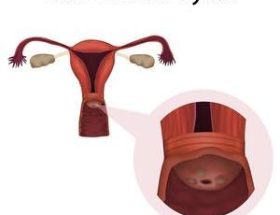Women’s mental health issues have gained significant attention and recognition in recent years. It is crucial to address the unique challenges women face when it comes to mental well-being. Research shows that women are more likely to experience certain mental health disorders and face specific stressors that are gender-specific. In this article, we will explore some of the prevalent mental health issues faced by women and the importance of prioritizing women’s mental well-being.
The Gender Gap in Mental Health
Women tend to experience higher rates of mental health disorders compared to men. According to the World Health Organization (WHO), globally, women are twice as likely as men to experience depression. This significant disparity indicates the need for targeted interventions and support for women’s mental health. There are several factors that contribute to this gender gap. Biological factors such as hormonal fluctuations during puberty, pregnancy, and menopause can increase the risk of developing mental health issues. Additionally, women often encounter unique socio-cultural pressures, including gender discrimination, violence, and the burden of multiple roles, which can negatively impact their mental well-being.
Common Mental Health Issues Among Women
1. Depression: As mentioned earlier, depression is more prevalent in women. It can be influenced by various factors, including hormonal changes, genetics, and life events. Depression can affect women at any age, but it is especially prominent during adolescence, pregnancy, and during the postpartum period. 2. Anxiety Disorders: Women are more likely to experience anxiety disorders, such as generalized anxiety disorder (GAD), panic disorder, and obsessive-compulsive disorder (OCD). Hormonal fluctuations and societal pressures contribute to the higher prevalence of anxiety among women. 3. Eating Disorders: Disorders like anorexia nervosa, bulimia nervosa, and binge-eating disorder predominantly affect women. Societal ideals of appearance, media influence, and low self-esteem often play a role in the development of eating disorders. 4. Post-Traumatic Stress Disorder (PTSD): Women are more susceptible to developing PTSD compared to men, primarily due to a higher likelihood of experiencing sexual assault, domestic violence, and childhood trauma.
The Importance of Women’s Mental Health
Addressing women’s mental health is not just about helping individuals; it also has broader implications for society as a whole. When women struggle with their mental well-being, it can impact their ability to thrive personally, professionally, and within their families. By prioritizing women’s mental health, we can break the stigma surrounding mental illness and foster support systems that promote overall well-being. It is essential to provide women with accessible and specialized mental health services that acknowledge and address their unique challenges.
Support and Treatment Options
Fortunately, various support and treatment options are available to help women cope with mental health issues and improve their well-being: 1. Therapy and Counseling: Psychotherapy, including cognitive-behavioral therapy (CBT) and interpersonal therapy (IPT), can be highly effective in managing mental health disorders. Individual counseling or support groups tailored specifically for women are valuable resources. 2. Medication: In some cases, medication may be prescribed by healthcare professionals to alleviate symptoms of mental health disorders. It is crucial to consult with a qualified healthcare provider to determine the best course of treatment. 3. Lifestyle Changes: Prioritizing self-care, maintaining a balanced diet, regular exercise, and adopting stress management techniques can significantly contribute to improved mental well-being. 4. Social Support: Building a strong support network, whether through family, friends, or online communities, can provide women with a sense of connection and understanding. Sharing experiences and seeking support from others going through similar challenges can be empowering.
Conclusion
Women’s mental health is a critical area that deserves utmost attention. By recognizing the gender-specific challenges faced by women and addressing them through specialized interventions and support systems, we can strive towards a more mentally healthy and inclusive society. It is essential to continue raising awareness and reducing the stigma surrounding women’s mental health issues to ensure that women receive the care and support they deserve.









